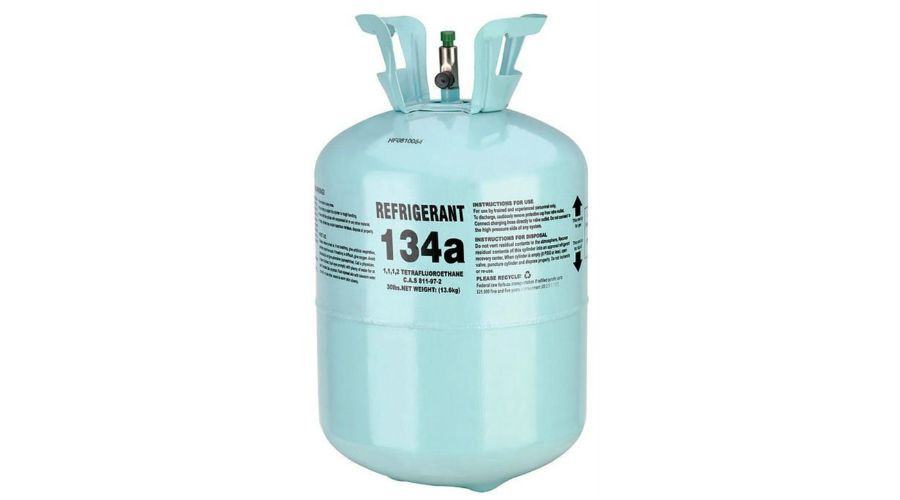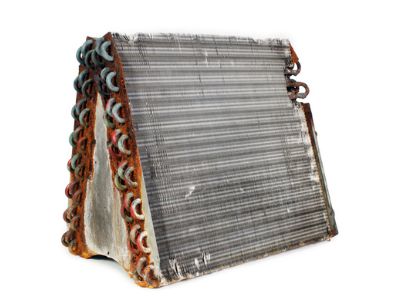
What Are Air Conditioning Unit Refrigerants?
Here’s the thing: homeowners should never worry about their AC system’s refrigerants. When one purchases an AC unit, they should never have to put refrigerants into it. These substances should automatically come inside the appliance and last for the rest of its lifetime.
Yet, some HVAC systems experience leaks and other issues that allow refrigerants to escape. This can make it difficult to maintain a home’s indoor temperature. If one ever has a problem with refrigerant leaving their AC system, they should consult their user manual. This will explain what type of refrigerant the unit needs and what to do next.
If one has problems doing this, they should immediately consult an HVAC specialist.
What Refrigerant Does an HVAC System Use?
Every HVAC system is different, even those made by the same manufacturer. Again, if a homeowner doesn’t know what refrigerant their air conditioning unit needs, they should read the appliance’s user manual.
Here’s a fun fact: if a homeowner has an HVAC system made before 2010, the unit needs something called “R22.” Also known as freon, it was used in many HVAC systems before it was outlawed by the Environmental Protection Agency (EPA). A HVAC professional can assess one’s system, determine whether it operates on R22, and go from there. They’ll likely remove the substance and put another refrigerant in its place.
Don’t Mix and Match Refrigerants
Refrigerants are volatile chemicals that do not mix. Knowing what cooling substance an AC unit needs makes it extremely important. If a homeowner mixes these chemicals, they risk:
- Permanently damaging their HVAC unit
- Causing dangerous chemical reactions inside the HVAC system
- Making the home unsafe to inhabit
Many Factors Can Cause Refrigerant Leaks 
Yet, these problems can cause refrigerant to escape the system:
- Wear-and-tear. The older an HVAC system gets, the more problems it could experience, such as leaking refrigerant fluid.
- Rust. When rust forms outside a metal pipe, this can cause corrosion over time, allowing both gas and liquid to leave the system.
- Pinholes. Some pinholes are so small that homeowners can’t see them. Chemical and sediment build-up inside the system can cause these tiny holes.
When an HVAC system professional examines an HVAC system, they can determine the cause of the refrigerant leak and recommend appropriate action.
Homeowners Should Consult Professionals if They Notice the Following 
- Frozen coils
- Inconsistent indoor temperatures
- Leaks
- Puddles around the AC unit
- Mold and mildew growth
- Unpleasant smells around the AC system
The U.S. Department of Energy notes that one should have their AC unit inspected about once a year. This way, professionals can catch the warning signs before they become massive problems.
About Chad’s AC Direct
Chad’s AC Direct offers comprehensive home improvement services to those living in Montgomery, Alabama. They’re open 24 hours a day, seven days a week, to help residents keep cool this summer. Interested parties in the area can call today for AC service!
Distribution Links +
- htv10.tv
- southeast.newschannelnebraska.com
- wicz.com
- rfdtv.com
- snntv.com
- central.newschannelnebraska.com
- metro.newschannelnebraska.com
- midplains.newschannelnebraska.com
- northeast.newschannelnebraska.com
- plattevalley.newschannelnebraska.com
- panhandle.newschannelnebraska.com
- wpgxfox28.com
- lifestyle.mykmlk.com
- wtnzfox43.com
- lifestyle.3wzfm.com
- lifestyle.southernsportstoday.com
- lifestyle.thepodcastpark.com
- lifestyle.680thefan.com
- lifestyle.xtra1063.com
- lifestyle.953hlf.com
- lifestyle.rewind1019.com
- lifestyle.us983.com
- lifestyle.countrylegends1059.com
- lifestyle.967wshv.com
- lifestyle.1045thedan.com
- yournewsnet.com
- michigan.yournewsnet.com
- midwest.yournewsnet.com
- northeast.yournewsnet.com
- southeast.yournewsnet.com
- southwest.yournewsnet.com
- lifestyle.earl983.com
- west.yournewsnet.com
- lifestyle.maverick1023.com
- lifestyle.magic979wtrg.com
- lifestyle.1077lakefm.com
- rivercountry.newschannelnebraska.com







